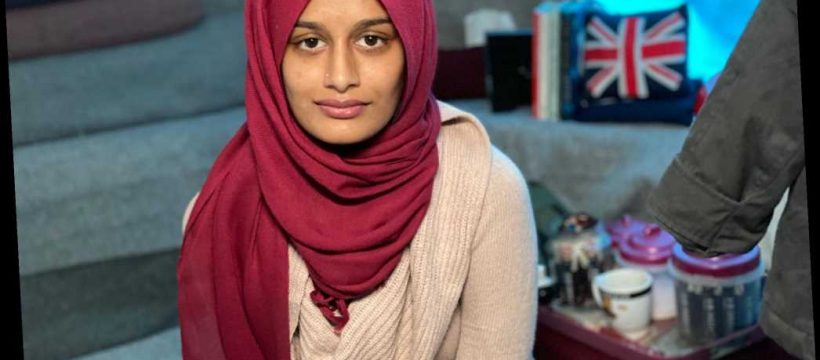JIHADI bridge Shamima Begum has been pictured for first time without a burka as she whinged her life "fell apart" when she was stripped of her British citizenship.
The former East London schoolgirl fled to join ISIS in Syria in 2015 before begging to be allowed to return home last year.
And she was yesterday pictured in an al-Roj camp in Northern Syria – saying she thought her case would be treated differently as she had not "done anything wrong" before joining ISIS.
Wearing a pink headscarf and a diamante nose stud, she has decorated her tent with a Union Jack cushion.
Speaking from her tent, she told the American network ABC News: "When my citizenship got rejected, I felt like my whole world fell apart right in front of me."
She added: "I thought I would be a bit different because I had not done anything wrong before I came to ISIS."
Shamima said it was extremely hard receiving the news that her citizenship had been revoked – told by journalists instead of hearing directly from the government.
She is now sharing a tent with Kimberly Polman, a dual Canadian-US citizen who travelled to Syria in 2015 to marry an Islamic militant she had met online. The 46-year-old has since said she deeply regretted her decision.
JOINING TERROR
Begum and two school friends, all aged 15 and 16 from Bethnal Green Academy in East London, left the UK to join the terror group.
She married Dutch ISIS convert Yago Riedijk 10 days after arriving in the country, with her pals also reportedly marrying foreign IS fighters.
The teenager was later tracked down, nine months pregnant, in a Syrian refugee camp in February 2019. The baby died weeks later shortly after his birth.
Then Home Secretary Sajid Javid stripped her of her British citizenship, a decision Ms Begum's lawyers argued was unlawful as it left her stateless.
It comes after a top anti-terror lawyer warned Jihadi brides should be treated as harshly as terrorist husbands.
Jonathan Hall QC said: "Calling all women Jihadi brides by portraying them as passive victims of males in some cases risks underplaying female agency; the law does not quite deal with those who provide important moral but not material support."
Source: Read Full Article






